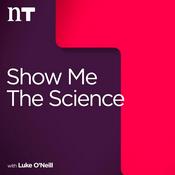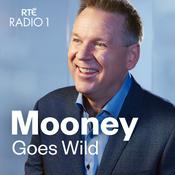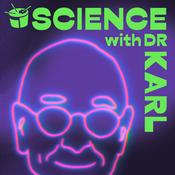640 episodes
- A small but mighty problem: what to do with the radioactive waste we have already made? Professor Clare Corkhill from the University of Bristol gives us the run down on how radioactive waste is created.
In Onkalo Finland, Victoria Gill visits the first national facility able to provide a long term solution to nuclear waste by burying it deep underground, which is due to begin operations this year.
But how can you stop future civiliations from digging it up again? Journalist Mark Piesing has written on the issue, and artist Gair Dunlop at the University of Dundee has for several years co-convened an international, interdisciplinary collaboration known as the Nuclear Culture Research Group looking at the best ways of deterring trespass over hundreds of millions of years hence.
Presenter: Marnie Chesterton and Victoria Gill
Producer: Alex Mansfield
Editor: Martin Smith
Production co-ordinator: Jana Bennett-Holesworth - Elon Musk says his company Space X will focus on establishing a ‘self-growing city’ on the moon before going to Mars. Why the pivot? And what would it take to build a lunar metropolis? Victoria Gill speaks to head of space at the Science Museum Libby Jackson.
Can we stimulate the human brain to make humans more altruistic? Professor of neuroeconomics at the University of Zurich, Christian Ruff brings us the results of his experiments. And science journalist Caroline Steel brings us her selection of the most exciting new scientific discoveries this week.
To discover more fascinating science content, head to bbc.co.uk, search for BBC Inside Science and follow the links to The Open University.
Presenter: Victoria Gill
Producer: Clare Salisbury, Kate White, Katie Tomsett
Editor: Martin Smith
Production Co-ordinator: Jana Bennett-Holesworth - This week the UK Government decided it was worried enough about so called ‘forever chemicals’ to bring in it’s first ever plan to tackle them. Environment Minister Emma Hardy called PFAS "one of the most pressing chemical challenges of our time". Stephanie Metzger, policy adviser at the Royal Society of Chemistry talks us through where all these chemicals have come from, and Lucy Hart, researcher at Lancaster university, brings us new science on their sources.
Technology journalist Gareth Mitchell is in the studio with his take on this week’s brand new discoveries.
And as future winter Olympians ready themselves atop Italy’s snow-covered peaks, Victoria Gill hears how the chemical make up of ski wax can make or break a gold medal winning run. She hears from Jostein Vinjerui, manager of the British cross-country team, and Pat Sharples, Head Coach for GB Snowsports.
To discover more fascinating science content, head to bbc.co.uk, search for BBC Inside Science and follow the links to The Open University.
Presenter: Victoria Gill
Producer: Alex Mansfield, Katie Tomsett, Kate White and Clare Salisbury
Editor: Martin Smith
Production Co-ordinator: Jana Bennett-Holesworth - This week 14 European countries warned that “maritime safety and security” was being put in jeopardy by Russian interference. The Royal Institute of Navigation says GPS is so vulnerable to so called ‘spoofing’ and ‘jamming’ that we need to rethink the navigation systems on which shipping relies. Tom Whipple speaks to Ramsey Faragher, CEO of the Institute.
Something else with the potential to affect navigation systems are solar storms. Tom visits Professor Tim Horbury and Helen O’Brien at Imperial College London whose instrument strapped to the Solar Orbiter probe, and speeding through space, is giving us more warning about solar activity which could affect us here on earth.
And science journalist Caroline Steel brings you the latest scientific research.
To discover more fascinating science content, head to bbc.co.uk, search for BBC Inside Science and follow the links to The Open University. - It’s exactly half a century since two Concorde jets took off from Paris and London respectively. The supersonic jet would come to define top end luxury travel. But Concorde has also been retired for nearly half that time, famously making its final flight to Bristol, UK where it was built, in 2003.
What is Concorde’s engineering legacy? And will supersonic speeds ever be a reality for air travellers again?
Tom Whipple is at Aerospace Bristol, back on-board Concorde which these days is stowed safely in its hangar. He meets Concorde’s former Chief Engineer John Britton. He also hears what it will take to overcome the engineering challenges of supersonic flight from Dr Kshitij Sabnis, lecturer in Aerospace Engineering at Queen Mary University of London. And speaks to founder and CEO of US start up Boom Supersonic Blake Scholl who wants to make supersonic air travel accessible to all.
To discover more fascinating science content, head to bbc.co.uk, search for BBC Inside Science and follow the links to The Open University.
Presenter: Tom Whipple
Producer: Tim Dodd, Kate White, Clare Salisbury
Editor: Martin Smith
Production Co-ordinator: Jana Bennett-Holesworth
More Science podcasts
Trending Science podcasts
About BBC Inside Science
A weekly programme that illuminates the mysteries and challenges the controversies behind the science that's changing our world.
Podcast websiteListen to BBC Inside Science, The Rest Is Science and many other podcasts from around the world with the radio.net app

Get the free radio.net app
- Stations and podcasts to bookmark
- Stream via Wi-Fi or Bluetooth
- Supports Carplay & Android Auto
- Many other app features
Get the free radio.net app
- Stations and podcasts to bookmark
- Stream via Wi-Fi or Bluetooth
- Supports Carplay & Android Auto
- Many other app features


BBC Inside Science
Scan code,
download the app,
start listening.
download the app,
start listening.







































